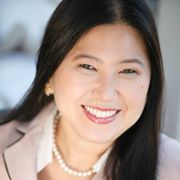Cutting-edge innovations can be life-changing, but patients often have to do some extra research to educate themselves to find the right solution for their problems.
NEW YORK (PRWEB) January 04, 2019
Women undergoing mastectomy must make decisions about breast reconstruction: whether, when, and how to have breast reconstruction and, crucially, who should perform the surgery. Often, women are referred to a plastic surgeon by their breast surgeon and assume that all of their options will be presented. In reality both mastectomy and breast reconstruction have come a long way, and not all plastic surgeons are able to offer all reconstructive options. Cutting-edge innovations can be life-changing, but patients often have to do some extra research to educate themselves to find the right solution for their problems.
“Breast reconstruction has made significant advances in recent years,” says board-certified plastic surgeon and breast reconstruction specialist Dr. Constance M. Chen. “When working with a mastectomy surgeon who is able to preserve the breast skin and nipples, a reconstructed breast can look and feel just like a normal breast and sometimes other doctors don’t realize that it is not the woman’s original breast. Surgical options to create a soft, warm, natural breast from the woman’s own tissue have improved to the point that new microsurgical techniques allow plastic surgeons to reconnect nerves and restore feeling to the breast. Sometimes, however, it takes some work to find highly specialized surgeons who have the skill set and commitment to achieve the best results. In some cases, women may need to travel away from home for a team who can provide them with adequate breast reconstruction options.”
Surgeons vary widely in their experience and in the operations they feel comfortable undertaking. Patients should understand a surgeon’s certifications and ask how often they have performed various procedures. Importantly, each woman should make sure that the recommended surgery is the best one for her and not simply the one preferred by the plastic surgeon that she happens to meet. For example, newer procedures for autologous reconstruction (with the woman’s own tissue), such as the DIEP or PAP flap, require specialized microsurgical skills to reattach tiny blood vessels under an operating microscope. Plastic surgeons with advanced microsurgical training are not available everywhere. Furthermore, just because a surgeon can perform the technical operation does not mean that the final overall outcome is the same as someone with more finesse. Surgeons often have drastically different philosophies about the importance of the final medical and aesthetic outcome.
“Beyond professional qualifications, patients must find a surgical team with which they feel most comfortable,” says Dr. Chen. “Are questions welcomed and answered fully? Do you feel you can speak freely and have open and honest communications about your concerns? What kind of support will you get on administrative and financial matters? If the best team for you is far from home, what kind of assistance and support can you count on for travel arrangements and for managing follow-up care?”
Dr. Chen stresses that open communication with the surgical team is the most important factor in arranging for surgery far from home. She adds these tips for patients:
● Whether your plan is to have the mastectomy and immediate reconstruction in a single surgery or you are having reconstruction some time after the mastectomy, many of the issues regarding travel are similar.
● You will need accommodations in a hotel or short-term apartment rental that caters to and has special rates for surgical patients. Your surgeon’s office or hospital should be able to provide recommendations and help you estimate how long you will need to stay for follow-up care after your discharge form the hospital.
● Some cities have special facilities for patients such as the American Cancer Society’s Hope Lodge, which offers guest suites for patients and caregivers as well as communal kitchens and activity rooms. Hope Lodge has 30 locations in the United States, including New York City.
● Several charitable organizations including Corporate Air Network and Angel Flight provide free air travel for cancer patients. More information on charitable medically-related travel is available at patienttravel.org, a national referral service.
● You may need to coordinate local care in advance with a primary care physician or local surgeon for a pre-surgical exam and lab work as well as for post-operative follow-up care once you return home.
“For a woman recovering from breast surgery, breast reconstruction is often a crucial aspect of the healing process, both physically and psychologically,” says Dr. Chen. “For some women, traveling to achieve the best breast reconstruction option provides an enormous boost to her sense of self. Knowing that she has found the surgeon who is committed to her well-being puts her on the right road to recovery so that she can live a long and healthy life beyond cancer.”
Constance M. Chen, MD, is a board-certified plastic surgeon with special expertise in the use of innovative natural techniques to optimize medical and cosmetic outcomes for women undergoing breast reconstruction. She is Clinical Assistant Professor of Surgery (Plastic Surgery) at Weill Cornell Medical College and Clinical Assistant Professor of Surgery (Plastic Surgery) at Tulane University School of Medicine. http://www.constancechenmd.com

